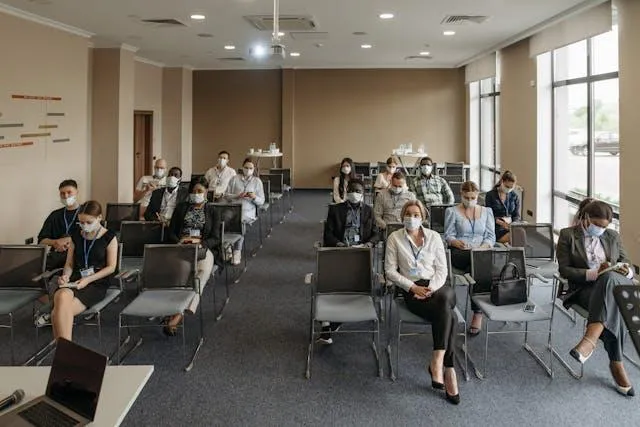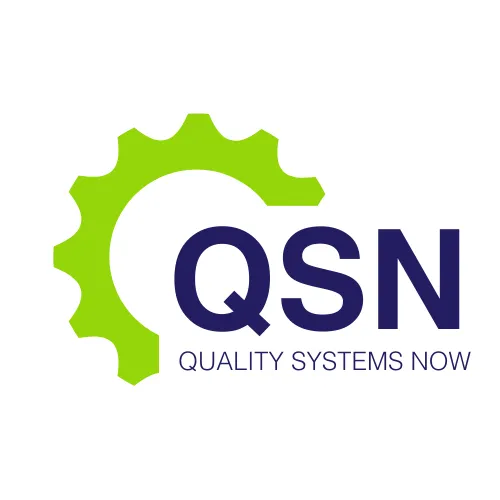NEWS

Staff Training on GMP Compliance: Building Competence and Culture
While regulations, procedures, and technologies provide the framework, it is ultimately people who ensure GMP compliance in daily operations. This makes staff training not only a regulatory requirement but also a critical determinant of product safety, regulatory approval, and organisational reputation.
At QSN Academy, the educational arm of Quality Systems Now, training is central to our mission of supporting companies to meet global GMP requirements. This article explores the importance of staff training in GMP compliance, the key regulatory expectations, and effective strategies to implement training programmes that drive competence, confidence, and a sustainable quality culture.
The Regulatory Imperative for Training
GMP regulations worldwide, including the PIC/S Guide to GMP and the EU GMP code, mandate structured training for all personnel whose work may impact product quality. This extends beyond production operators to include staff in quality control laboratories, engineering and maintenance, cleaning, logistics, and even external contractors entering controlled environments.
The rationale is straightforward: every individual in the chain can directly or indirectly influence quality. A cleaner who fails to follow proper gowning procedures in a cleanroom can compromise sterility. A technician performing equipment servicing without training may inadvertently introduce contamination. Therefore, regulators require documented, role-specific training programmes with clear records demonstrating compliance.
Types of GMP Training
Training in GMP environments is not a single event but a structured continuum, encompassing several key stages:
Induction Training
Newly recruited staff must undergo induction training before commencing their duties. This includes an introduction to GMP principles, company policies, site-specific quality systems, and safety protocols. Induction establishes a baseline understanding of why compliance matters and how the individual’s role contributes to patient safety.
Role-Specific Training
After induction, staff must receive training tailored to their assigned duties. For example, a microbiologist in a QC laboratory must understand aseptic techniques and data integrity principles, while a warehouse operator must be trained in proper segregation, labelling, and storage of materials.
Continuing Training
Regulations emphasise that training is an ongoing requirement. GMP standards evolve, processes change, and deviations provide new learning opportunities. Regular refresher courses, updates on regulatory changes, and retraining after procedural updates ensure that staff remain competent and compliant.
Specialised Training for High-Risk Areas
Personnel working in cleanrooms, handling potent active pharmaceutical ingredients, or managing cytotoxic or infectious materials require specialised training. This includes gowning techniques, containment strategies, and emergency procedures. Training in these areas is often competency-based, requiring demonstrated performance rather than theoretical knowledge alone.
Assessing Training Effectiveness
Training is only meaningful if it translates into correct behaviour and competent performance. Regulators increasingly expect companies to demonstrate not only that training was delivered but also that it was effective.
Assessment methods may include:
Written or electronic knowledge tests.
Direct observation of tasks by supervisors or trainers.
Practical demonstrations in controlled environments.
Analysis of deviation and error trends to identify training gaps.
This feedback loop ensures that training is not a box-ticking exercise but an active driver of performance improvement.
Training Records and Documentation
From a compliance perspective, training records are vital. Inspectors will ask to see evidence that all staff are trained for their roles, that refresher training is conducted regularly, and that records are accurate and complete.
Training records should include:
Dates of training.
Content covered.
Trainers responsible.
Attendee signatures or electronic confirmations.
Results of assessments where applicable.
These records serve as proof of compliance and provide management with insights into workforce capability and potential gaps.
Embedding a Quality Culture Through Training
Beyond compliance, effective training fosters a quality culture. A strong quality culture means employees do not see GMP as an external imposition but as an integral part of their professional identity.
Interactive training methods, such as case studies, root cause analysis of past deviations, and group discussions, help staff engage critically with GMP principles. Instead of memorising rules, they learn to apply judgment in real-world scenarios. This approach builds accountability and resilience, especially in high-pressure environments where adherence to GMP is non-negotiable.
Challenges in Implementing GMP Training
While essential, implementing robust GMP training can present challenges:
Resource constraints: Scheduling training without disrupting production requires careful planning.
Relevance: Training must be specific to roles; generic programmes risk disengagement.
Keeping up to date: Frequent regulatory updates require rapid integration into training materials.
Measuring effectiveness: Traditional methods such as attendance records may not guarantee behavioural change.
Organisations that overcome these challenges treat training not as a one-off event but as part of the broader Pharmaceutical Quality System.
Best Practices for GMP Training
To maximise impact and ensure compliance, companies can adopt the following best practices:
Risk-based training matrices: Align training content with the criticality of roles and processes.
Blended learning approaches: Combine classroom sessions, e-learning modules, and hands-on practical training.
Scenario-based learning: Use real case studies to improve problem-solving and decision-making.
Regular reviews: Conduct training audits and feedback sessions to identify areas for improvement.
Senior involvement: Training endorsed and sometimes delivered by senior management reinforces its importance.
These practices transform training from a compliance requirement into a strategic advantage.
The Role of QSN Academy
QSN Academy supports therapeutic goods manufacturers, testing laboratories, and biotechnology companies by providing high-quality GMP and regulatory compliance training. With programmes designed for industry professionals, regulators, and university students, QSN Academy bridges theory and practice, ensuring participants are not only compliant but also confident in applying GMP standards in real-world settings.
Our approach emphasises practical learning, regulatory alignment, and fostering a culture of continuous improvement. Through tailored courses, workshops, and international collaboration, QSN Academy contributes to raising industry standards and supporting global patient safety.
Conclusion
Staff training is at the heart of GMP compliance. It ensures that every individual, regardless of role, has the knowledge, skills, and judgment to protect product quality and patient safety. By providing structured, role-specific, and continuous training, companies meet regulatory requirements and build resilient quality cultures.
QSN Academy remains committed to delivering world-class training solutions that empower organisations to not only comply but excel in their GMP obligations. In an industry where the stakes are measured in human health and lives, training is not simply a regulatory box to tick—it is the foundation of trust, safety, and professional excellence.
